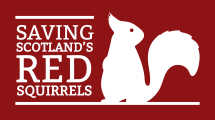…in situ. Complete your Tetrad Data Sheets, including your volunteer hours and collected stickies, posting these in the addressed pre-paid envelope provided. If you have been storing bait, you are welcome to use this in your own garden. For any other equipment you have such as cameras and spray bottles, please keep hold of these for now. When Covid-19 restrictions… […]
Read More…
…the largest dedicated funder of the UK’s heritage, The National Lottery Heritage Fund’s vision is for heritage to be valued, cared for and sustained for everyone, now and in the future as set out in our strategic plan, Heritage 2033. Over the next ten years, we aim to invest £3.6billion raised for good causes by National Lottery players to bring… […]
Read More…
Our Partners & Funders Saving Scotland’s Red Squirrels is led by the Scottish Wildlife Trust in partnership with NatureScot, Scottish Forestry, RSPB Scotland, Scottish Land & Estates, Forestry and Land Scotland, Loch Lomond & The Trossachs National Park Authority, and Aberdeen City Council. The project is supported by the Scottish Government’s Nature Restoration Fund, managed by NatureScot, along with project… […]
Read More…
…Developing Community Action From April 2017 – March 2024 SSRS received funding from the National Lottery Heritage Fund to deliver our ‘Developing Community Action’ phase. Alongside vital conservation work, the project focused on engaging with local communities and individuals, inspiring them to take action to protect red squirrels where they live. As a result, 17 dedicated and enthusiastic independent volunteer… […]
Read More…
…is one of the remaining red squirrel strongholds in England. Working closely with the Lancashire Wildlife Trust and their Red Squirrel Project Officer, we carried out live-capture trapping to record population demographics (e.g. numbers of males/females, adults/juveniles, and breeding individuals), insert PIT tags (a type of microchip, similar to those used for pet cats and dogs, for identifying individuals), and… […]
Read More…
…foot, by bike, and sometimes with her guide dog puppy in training, “Simon”. We are absolutely gutted to be saying goodbye to Janice as she moves to pastures new, but we know that she will continue to make a difference wherever she is. So, to Janice, thank you for more than two years volunteering for Aberdeen’s red squirrels, and farewell,… […]
Read More…
One year on from it’s five-year Developing Community Action project, Saving Scotland’s Red Squirrels detail key successes of red squirrel conservation work, and advise on essential actions needed to ensure long-term survival of the species in Scotland. The final report of the £2.46 + million funded project, titled Saving an icon: Final report from the Developing Community Action Phase of… […]
Read More…
The award-winning environmental charity Trees for Life stands at the forefront of rewilding in the Scottish Highlands, and for over 30 years has been working to nurture and expand ancient woodland fragments and reintroduce missing animals. Red squirrels are an iconic Scottish species and a key resident of the Caledonian forest, but habitat loss from deforestation, human persecution, and competition… […]
Read More…
…in ‘mating chases’, where multiple males chase fertile females (only fertile for one day during their cycle) across the ground, around tree trunks, and through branches. It can be noisy, so keep your ears tuned for sounds of scrabbling claws, as well as chirping and calling! Nesting The exterior of breeding dreys resembles an untidy ball of sticks, however the… […]
Read More…
…commercial conifers – to red squirrels. The researchers, together with Ulster Wildlife, bring into question red squirrel conservation strategies that focus on the planting of such forests. Scotland’s conifer forests In Scotland, non-native conifer forests are planted for commercial purposes. By the 1930s red squirrel populations were in serious decline in the UK, but the extensive conifer planting that… […]
Read More…
